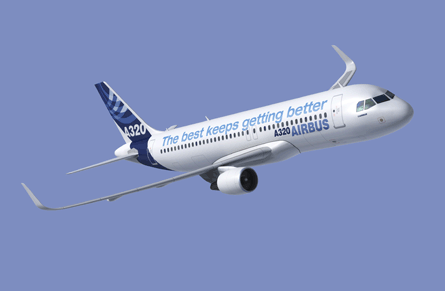A winglet-equipped version of the Airbus A320 will enter service in late 2012, delivering fuel burn improvements of up to 3.5%. Launch customer is Air New Zealand.
Airbus's chief operating officer customers John Leahy says that the airframer had decided to adopt its own "sharklet" design after a series of winglet flight-test evaluations in recent years.
"The sharklet can give you another 150nm [278km] range or 500kg [1,100lb] more payload," he says.
Offered only on new-build aircraft, the sharklet has a $900,000 list price per shipset. Leahy says that a retrofit for in-service aircraft is being examined in conjunction with Aviation Partners (API), which worked with Airbus on the new-build winglet programme.
 |
|---|
© Airbus |
Airbus tested its own winglet design several years ago before the more recent trials of an API version. Leahy says that the sharklet design is all-new and has already been evaluated using computational fluid dynamics analysis. "It will be scaled from the A350's sharklet.
"We'll do the final computer work in 2010, manufacture in 2011 and flight test in 2012. Service entry on the A320 will be in late 2012."
The upgrade will follow on the A321 and A319 six and 12 months later. An offering on the A318 is still being looked at.
Leahy says that the 2.4m (7.8ft)-high sharklets will be "weight neutral" as the required wingbox strengthening, which adds 200kg, will be offset by the ongoing airframe weight-saving effort.
The 3.5% fuel burn improvement is achieved on flights greater than 2,800km. The winglets also boost take-off and climb performance and provide significant gains in payload/range from hot/high airfields, says Leahy.
Air New Zealand, which recently ordered 14 International Aero Engines V2500-powered A320s, confirms that it has become launch customer for the sharklet.
"The new sharklets will enable our Airbus fleet to benefit from lower fuel burn and carbon emissions, both across Air New Zealand's domestic network and especially on the longer trans-Tasman sectors," says chief executive Rob Fyfe.
Source: Flight Daily News























